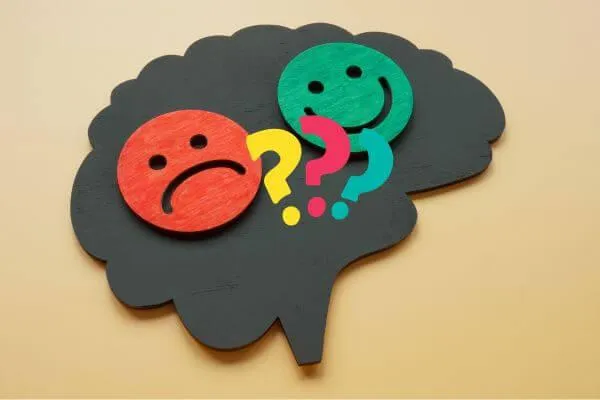
How Menopause Changes Your Brain and What You Can Do About It
Menopause is a transformative phase in a woman's life, but its effects go beyond the commonly discussed symptoms like hot flashes and sleep disturbances. New ground-breaking research by neuroscientist Dr. Lisa Mosconi reveals how menopause uniquely impacts the brain, particularly in how it processes oestrogen—a key hormone linked to cognitive health.
Menopause and Brain Health: What Happens?
As you transition through menopause, your brain undergoes significant hormonal changes, specifically related to oestrogen. Oestrogen is also a key player in brain function, influencing memory, mood regulation and overall cognitive performance.
Dr. Mosconi's recent research, published in Nature Scientific Reports, used PET scans to map oestrogen receptor activity in the brains of women across different menopausal stages.
The findings were ground-breaking: oestrogen receptors in the brain actually become more active post-menopause, rather than shutting down as previously believed.
This suggests that the brain continues to seek oestrogen for cognitive function long after menopause begins.
However, with the natural decline in oestrogen production from the ovaries, the brain has to work harder to maintain balance. This disruption can contribute to common menopausal symptoms such as:
Brain fog
Memory lapses
Mood swings and
Difficulty concentrating

The study revealed that decreased oestrogen levels affect regions of the brain responsible for memory and emotional regulation, such as the hippocampus. Oestrogen plays a protective role and when levels drop, it can trigger cognitive issues commonly described as "brain fog."
The brain's demand for oestrogen post-menopause may explain why some women experience cognitive challenges during this life phase.
The good news?
Understanding this connection opens the door for better symptom management and support.
How to Support Your Brain During Menopause
While hormonal changes are inevitable, there are proactive steps you can take to support your brain health during and after menopause:
1. Hormone Replacement Therapy (HRT)
HRT can help restore oestrogen levels, potentially alleviating cognitive symptoms like brain fog.
Discuss the risks and benefits with a healthcare provider to determine if this option suits you.
2. Nutrition for Brain Health
Incorporate foods rich in phytoestrogens (plant-based oestrogens) like flaxseeds, soy, and legumes.
Prioritize omega-3 fatty acids (found in salmon, walnuts) and antioxidants from berries and leafy greens to combat oxidative stress in the brain.
3. Physical Activity
Regular exercise increases blood flow to the brain and supports cognitive health.
Aim for a combination of aerobic activities like walking and strength training for optimal benefits.
4. Cognitive Engagement
Stimulate your brain with puzzles, reading or learning new skills.
Do activities that challenge your memory as focus can help keep the brain sharp.
5. Stress Management and Sleep Hygiene
Menopause can disrupt sleep patterns, impacting cognitive clarity, so try and get your sleep right
Practice mindfulness, yoga, or meditation to manage stress and improve sleep quality.
6. Build a Support Network
Share your experiences with other women going through menopause. It helps you feel less alone and it can be very empowering knowing that its not just you!
Join support groups or attend workshops focused on cognitive health during menopause.
Embracing Your Brain's Resilience
The latest research offers hope: your brain is adaptable and capable of resilience, even during menopause. By understanding the profound connection between oestrogen and brain health, you can take empowered steps to maintain cognitive clarity and emotional well-being.
If you're navigating this stage and need guidance, remember you're not alone. Seek professional support, explore holistic wellness strategies and trust that your brain can thrive with the right care and attention.
Got questions or curious to learn more?
Don’t hesitate to reach out — I’m always here to help you feel supported on your menopause journey.
Think this could help a friend?
Go ahead and share it!
We’re all in this together, and no one should have to navigate menopause alone.
